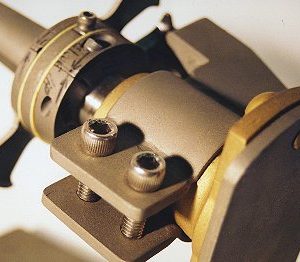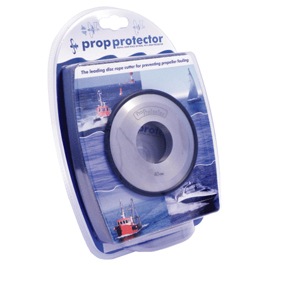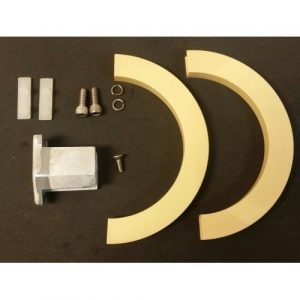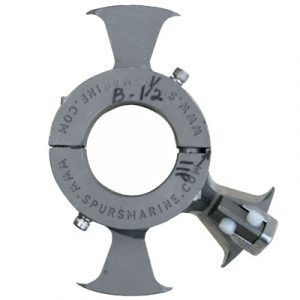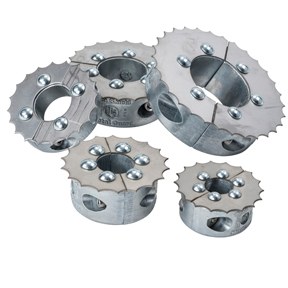Category
Price
We can supply a full range of Rope Cutters from the manufacturers above.
All prices are +VAT.
At best, a rope around the propeller is inconvenient. At worst, it’s deadly.
Rope cutters can free you from a knotty situation.
How rope cutters work
There are at least eight different makes of cutter on the UK market. Three are scissors-type cutters, four use discs and one is a shaver.
Scissors
The scissors-type was the first on the market. It comprises a rotating cutter clamped to the shaft, with two or more blades, plus a fixed cutter bolted to the P-bracket. As the prop rotates, obstructions are drawn down into the scissor blades and cut or chopped up.
The advantage is a positive cutting action, which also shreds weed and netting. There are various drawbacks: it’s a complex installation and you may need to fit a spacer in the gearbox coupling. Every two years or so, you will have to replace the thin plastic bearings, on which the fixed cutter spins on the shaft. Scissor cutters cause more drag than some other types and are the most expensive to buy.
Because of the loads on the fixed block of the scissor-types, they can usually only be fitted to metal P-brackets, stern tubes or hulls. GRP is not strong enough to stop the tapped machine-screws pulling out, though in some cases a plate can be made up to take the block, which is then glassed or bolted to the hull or tube. A scissor cutter is the only option for saildrives.
Disc
This type of cutter is a thin stainless steel disc with a sharpened edge. The disc can be split and clamped round the shaft, or solid, in which case the prop has to be removed and the disc slid up the shaft. In both cases the cutter is held in place with a grub screw. As the shaft spins, any rope or debris that is drawn down to the disc is gradually cut through as it passes over the knife-edge.
The advantages are simple installation and low cost, plus minimal drag underway. Disadvantages include the lack of a positive cutting action – discs can struggle to cut through weed and plastic sheeting. Disc types can be fitted to any shaft-drive boat. For a long-keel yacht with a keel-hung rudder, you may have to widen the prop aperture on the leading edge of the rudder.
Shaver
The shaver is a new development comprising fixed blades mounted on a block attached to the P-bracket or stern tube. GRP stern tubes may need some strengthening, depending on build quality. A plastic spool or cylinder is slid over the shaft and attached to the front boss of the prop, running under the cutter blades. As rope or debris is encountered, it is forced into the gap between the blades and the prop. As the blades spin, the rope is gradually shaved through.
Advantages include reduced load on the structure and transmission during cutting, plus minimal loss of boat speed. The disadvantage is complex installation and the need for accurate fitting in a machine shop. Pricewise, shavers are midway between discs and scissors, although you would have to add in the cost of machining the prop and sometimes the P-bracket, too.

